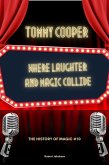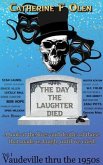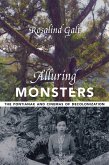Can you really die from laughing too hard? Between 1870 and 1920, hundreds of women suffered such a fate-or so a slew of sensationalist obituaries would have us believe. How could laughter be fatal, and what do these reports of women's risible deaths tell us about the politics of female joy?
Maggie Hennefeld reveals the forgotten histories of "hysterical laughter," exploring how women's amusement has been theorized and demonized, suppressed and exploited. In nineteenth-century medicine and culture, hysteria was an ailment that afflicted unruly women on the cusp of emotional or nervous breakdown. Cinema, Hennefeld argues, made it possible for women to laugh outrageously as never before, with irreversible social and political consequences. As female enjoyment became a surefire promise of profitability, alarmist tales of women laughing themselves to death epitomized the tension between subversive pleasure and its violent repression.
Hennefeld traces the social politics of women's laughter from the heyday of nineteenth-century sentimentalism to the collective euphoria of early film spectatorship, traversing contagious dancing outbreaks, hysteria photography, madwomen's cackling, cinematic close-ups, and screenings of slapstick movies in mental asylums. Placing little-known silent films and an archive of remarkable, often unusual texts in conversation with affect theory, comedy studies, and feminist film theory, this book makes a timely case for the power of hysterical laughter to change the world.
Maggie Hennefeld reveals the forgotten histories of "hysterical laughter," exploring how women's amusement has been theorized and demonized, suppressed and exploited. In nineteenth-century medicine and culture, hysteria was an ailment that afflicted unruly women on the cusp of emotional or nervous breakdown. Cinema, Hennefeld argues, made it possible for women to laugh outrageously as never before, with irreversible social and political consequences. As female enjoyment became a surefire promise of profitability, alarmist tales of women laughing themselves to death epitomized the tension between subversive pleasure and its violent repression.
Hennefeld traces the social politics of women's laughter from the heyday of nineteenth-century sentimentalism to the collective euphoria of early film spectatorship, traversing contagious dancing outbreaks, hysteria photography, madwomen's cackling, cinematic close-ups, and screenings of slapstick movies in mental asylums. Placing little-known silent films and an archive of remarkable, often unusual texts in conversation with affect theory, comedy studies, and feminist film theory, this book makes a timely case for the power of hysterical laughter to change the world.
Dieser Download kann aus rechtlichen Gründen nur mit Rechnungsadresse in A, D ausgeliefert werden.









